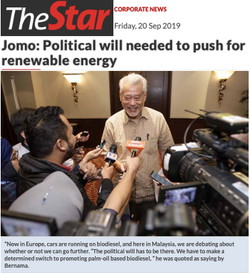- Jan 7, 2025
- 4 min read
Updated: May 16, 2025
KUALA LUMPUR, Malaysia, Jan 7 2025 (IPS) - The forthcoming fourth United Nations Financing for Development conference must address developing countries’ major financial challenges. Recent setbacks to sustainable development and climate action make FfD4 all the more critical.
FfD4
The FfD4 conference, months away, will mainly be due to efforts led by the G77, the caucus of developing countries in the UN system. The G77 started with 77 UN member states and has since expanded to over 130.
The 1944 Bretton Woods conference outcome was primarily a compromise between the US and the UK. In 1971, when its Bretton Woods obligations threatened to undermine its privileges, President Richard Nixon refused to honour the US pledge to deliver an ounce of gold for US$35.
Over two decades later, President Bill Clinton promised a new international financial architecture. It rejected Professor Robert Triffin’s characterisation of international monetary arrangements after the early 1970s as an incoherent ‘non-system’.
Foreign aid
Several issues are emerging as G77 priorities for FfD4. In 1970, wealthy nations at the UN agreed to provide 0.7% of their national income annually as official development assistance (ODA).
This was much lower than the 2% initially proposed by the World Council of Churches and others. Only 0.3% has been delivered in recent years, or less than half the promise.
Most ODA conditions reflect the priorities of donors, not recipient countries. New aid definitions, conditions, and practices undermine ‘aid effectiveness’, reducing what developing nations receive.
Despite breaking its ODA promises, the new European Parliament voted overwhelmingly to contribute 0.25% of national income to Ukraine. By early December 2024, Europe had provided well over half the USD260 billion in aid to Ukraine!
Some European nations now insist that only mitigation qualifies as climate finance. Although most developing countries are tropical and struggling to cope with planetary heating, little assistance is available for adaptation.
Debt
More recently, developing countries’ new debt has been more commercial and conditional but less concessional. With the transition to the Sustainable Development Goals (SDGs) in 2015, the World Bank encouraged much more commercial borrowing with its new slogan, ‘from billions to trillions’.
Following the 2008 global financial crisis, Western countries adopted unconventional monetary policies, eschewing fiscal efforts. Quantitative easing enabled much more borrowing, which grew until 2022.
However, most Western governments did not borrow much. Some private interests borrowed heavily, often for unproductive purposes, with some using cheap funds to finance shareholder buyouts to get more wealth.
Meanwhile, many developing countries went on borrowing binges as creditors pushed debt in developing countries in various ways. Rapidly mounting government debt would soon become problematic.
From early 2022 until mid-2024, interest rates rose sharply, ostensibly to counter inflation. The US Fed and European Central Bank raised interest rates in concert, triggering massive capital outflows from developing countries with the poorest worst affected.
Taxation
The Global South has long wanted the UN to lead negotiations on international taxation arrangements to provide more financial resources for development. However, the Organization for Economic Cooperation and Development (OECD) rich nations’ club has long undermined developing countries’ interests.
The OECD achieved this by misleading finance ministries in developing countries. It bypassed foreign ministries that had long worked well together on contentious Global South issues. With the OECD making up new rules for the world, developing country finance ministries signed on to a biased tax proposal on which they were nominally consulted.
At the FfD3 conference in mid-2015, the OECD blocked Global South efforts to advance international tax cooperation. An independent international commission proposed a minimum international corporate income tax rate of 25%.
Treasury Secretary Janet Yellen counter-proposed a 21% rate, the US minimum rate. However, at the G7 meeting he was hosting, Boris Johnson pushed this down to 15% while adding exemptions, reducing likely revenue.
Instead of distributing revenue as with a corporate income tax on profits from production, the OECD proposed revenue sharing according to consumption spending, much like a sales tax.
Poor countries would receive little as their population can afford to spend much less, even if they produce much at low wages. Rather than progressively redistribute, OECD international corporate income tax revenue distribution would be regressive.
Dollar
The US dollar remains the world’s principal currency for international transactions. US Treasury bond sales enable this, subsidising the world’s largest economy. Trump recently threatened the BRICS and others considering de-dollarization.
The leading BRICS proponents of de-dollarisation, Brazil and South Africa, have failed to persuade the other BRICS to de-dollarize. Instead, China’s central bank has issued dollar-denominated bonds for Saudi Arabia.
Special Drawing Rights (SDRs) should be issued regularly to augment discretionary IMF financial resources. This can be done without Congressional approval, as happened after the 2008 global financial crisis and the COVID-19 outbreak.
Such resources can be committed to the SDGs and climate finance.
But this cannot happen without collective action by the Global South seriously mobilising behind pacifist, developmental non-alignment. Inclusive and sustainable development is impossible in a world at war.
Available online here: Financing for Development Priorities Today




















